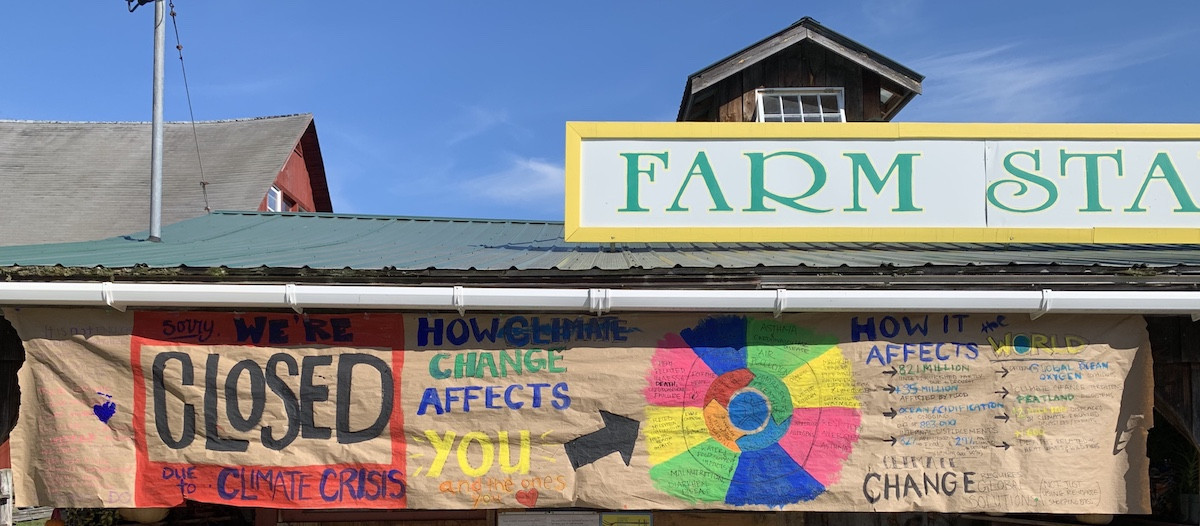This Week at the Farm: Climate Action!

Global Climate Strike week kicked off on Friday with protests around the world and millions marching to call for urgent action on climate change. In support of these youth-led protests, and to allow our staff to participate, we closed our farmstand and Hello Café for the day.
As an organic farming organization, we’ve pledged to continue our education efforts around the potential for regenerative farming to reverse climate change. The goal of this week’s newsletter is to provide information about the impact of agriculture on climate and to offer insight as to how agriculture can contribute to climate change mitigation.
The Problem
In industrial conventional farming, the fields are intensively tilled, or turned over, which releases excess carbon dioxide into the atmosphere and leaves the soil susceptible to erosion. On a large scale, this process encourages high degrees of mechanization and fuel-burning equipment that emits greenhouse gases into the atmosphere.
Conventional agriculture, in general, relies on fossil-fuel intensive chemical inputs to reduce weed pressure, manage pests, and ultimately increase yields. While farmers see short term results, these farming practices deplete and erode the soil and increase dependence on chemical inputs.
It is perhaps not surprising that agriculture and forestry contribute nearly 25% of global greenhouse gas emissions, mainly from the cultivation of crops and livestock.
The Solution?
While agricultural ecosystems remove carbon dioxide from the atmosphere and sequester carbon to offset emissions by about 20%, it is believed that we could sequester more than 100% of current annual carbon dioxide emissions if we converted all agricultural land to regenerative organic agriculture.
For over 40 years, the Rodale Institute of Kutztown, PA has been running a Farming Systems Trial to compare organic and conventional systems. They found that organic systems “use 45% less energy, release 40% fewer carbon emissions, improve the health and quantity of soil over time, and actually have the potential to produce yields up to 40% higher in times of drought.”
Regenerative organic farming goes a step further. It emphasizes the importance of optimizing soil health and increasing biodiversity, using natural methods like cover cropping rather than relying on synthetic inputs. (Read about the benefits of healthy soil here.)
A FREE Educational Opportunity
As part of our effort to increase awareness about the importance of healthy soil and how it can have a positive effect on our world, we’re offering a Family Soil Exploration Class this Sunday from 1–2 PM. It’s FREE and open to all ages, and we ask that you please pre-register.
Improving soil fertility and increasing the soil’s capacity to draw down carbon is at the forefront of our research at Cedar Circle Farm, and every day we are working to incorporate regenerative practices to address the planet’s climate crisis.
One way you can help support climate change mitigation efforts is choosing organic produce from farmers like us! Thank you for your continued support.
Interested in learning more? We’d love to hear from you! Contact us at growing@cedarcirclefarm.org.
–From all of us
Upcoming
September 21: Norwich Farmers’ Market, 9–1
September 22: Knife sharpening at the farmstand, 10–2; Family Soil Exploration, 1–2 pm.
September 24: Little Farmers drop-in class for children ages 2 to 5, 10–11 am.
September 26: Lebanon Farmers Market, 4–7 pm.
October 13: Pumpkin Festival, 10–3. [Volunteer]







